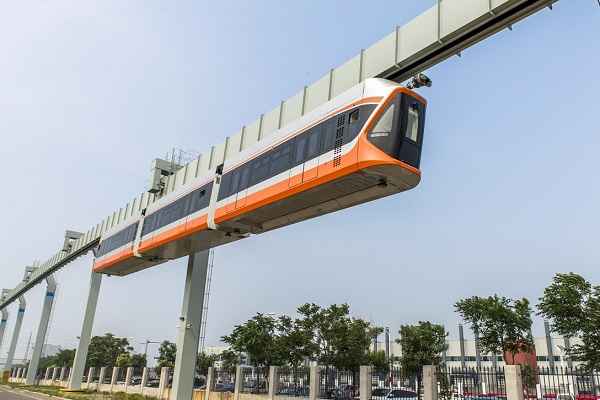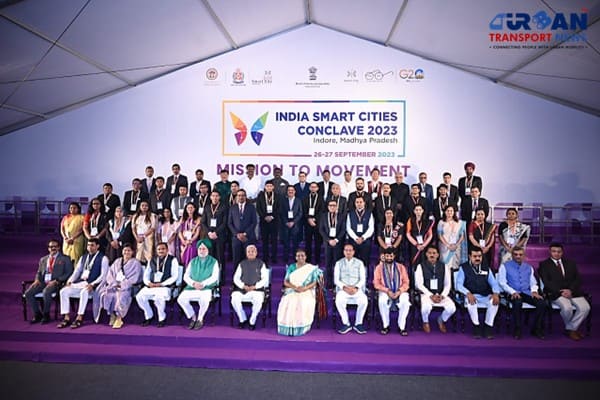 Vensa Infrastructure wins ₹412.58 crore civil contract for Hisar Airport
Vensa Infrastructure wins ₹412.58 crore civil contract for Hisar Airport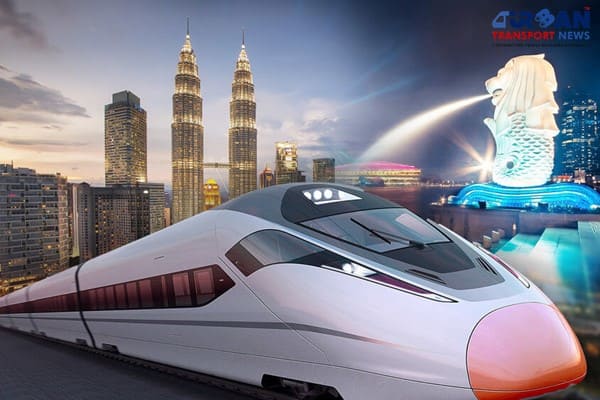 Kuala Lumpur-Singapore high-speed rail project cost could be slashed to RM70 Billion
Kuala Lumpur-Singapore high-speed rail project cost could be slashed to RM70 Billion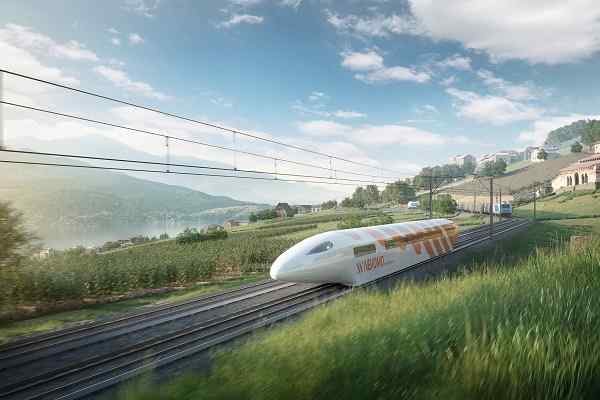 Nevomo's MagRail Technology Selected for Hyperloop Freight Demonstrator
Nevomo's MagRail Technology Selected for Hyperloop Freight Demonstrator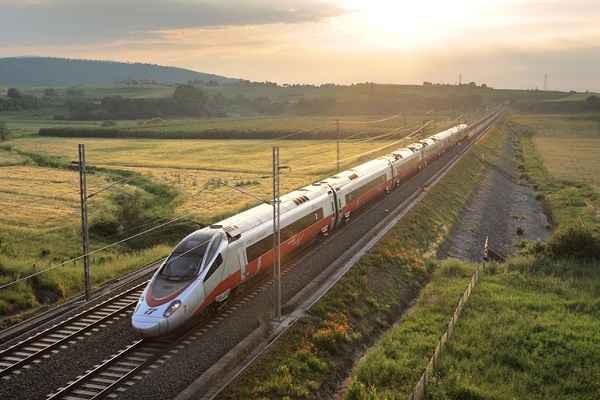 Russia signs deal to procure bullet trains for Moscow - St. Petersburg high-speed line
Russia signs deal to procure bullet trains for Moscow - St. Petersburg high-speed line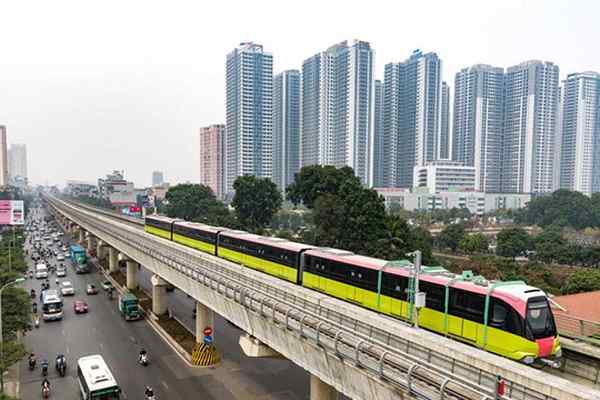 Vietnam plans new metro rail lines to replace its BRT systems in Hanoi
Vietnam plans new metro rail lines to replace its BRT systems in Hanoi 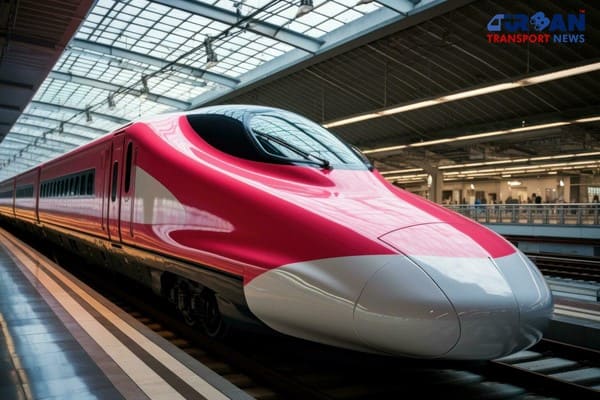 Revolutionizing Indian Railways: The Rise of Indigenous High Speed Bullet Trains
Revolutionizing Indian Railways: The Rise of Indigenous High Speed Bullet Trains Ayodhya deployed Gobbler Litter Buster to keep the City clean
Ayodhya deployed Gobbler Litter Buster to keep the City clean BMW's Emissions Investigation: What Does It Mean for Drivers?
BMW's Emissions Investigation: What Does It Mean for Drivers?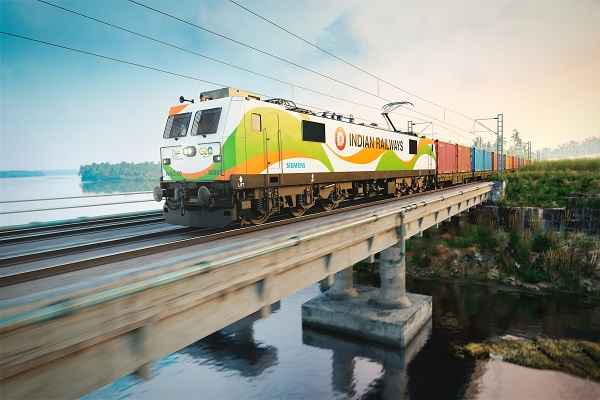 171 Years of Indian Railways: A History of Innovation and Progress
171 Years of Indian Railways: A History of Innovation and Progress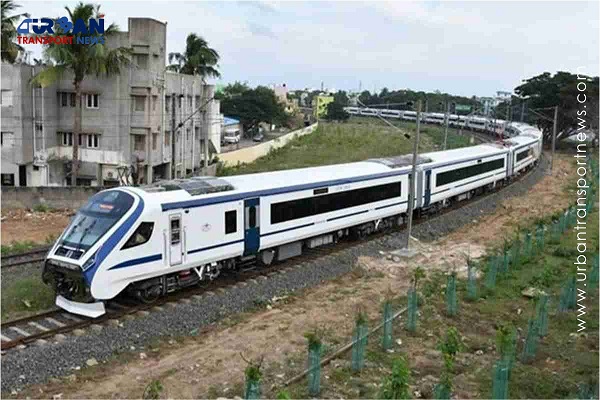 Vande Bharat Express trains carries over two crore passengers since their inception
Vande Bharat Express trains carries over two crore passengers since their inception
Smart cities meant cities that are progressive with ‘universal infrastructure’
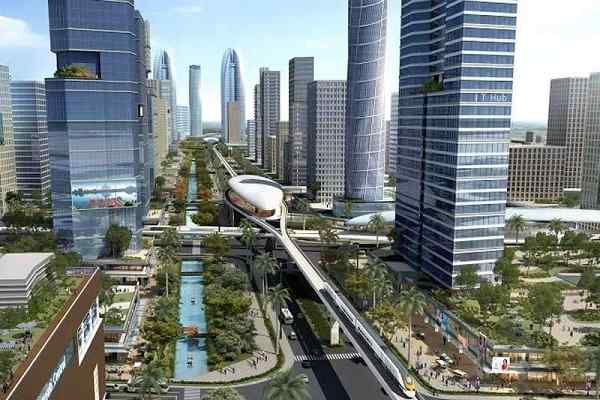
Ms. Karuna Gopal, Founder President of Foundation for Futuristic Cities, and a thought leader with a vision for Hyderabad, has talked with the Urban Transport News team about the current progress of 'Smart Cities Mission" of Govt. of India.
Here are the excerpts of her interview:-
You have recently unveiled ‘VISION HYDERABAD’. Could you brief our readers about this vision and how will it work?
Karuna Gopal: Our Vision is to shape Hyderabad into an Economically Vibrant, Environmentally Safe, Inclusive and a Happy City.
While Economic Vitality, Environmental Safety, and Equity are the tripod on which we envisage the city’s development, we placed Happiness at the core of our vision. Today, as you know, Happiness has evolved as a quintessential, global theme for defining development.
I believe that this Vision of ours will work primarily because of our approach – First of all it's a ‘Collective Vision’. It was prepared after several multi-stakeholder consultations. Our special attention was on 4 sections of society whose ‘voice’ was never considered in city development plans so far – Women, Senior Citizens, Disabled and the Urban Poor.
The strategies that will be distilled out of this vision document will be City – Centric and People – Centric with maximum emphasis on Collaboration. I believe City – Centricity is very important. Hyderabad’s unique requirements have to be factored in and people have to be at the core when infrastructure and services are being planned.
Perhaps the most striking feature of our vision is our focus on ‘Science of City’. Normally decisions are taken without instituting scientific studies. We want to rectify that. We believe in DATA, VITUALIZATION Protocols and Data MODELLING tools for forecasting. No city in India, used data modeling to predict what would happen to city’s climate resilience if 10 lakh people migrate into the city.
Why is there so much focus on smart cities right now? How did you come to be interested in smart cities?
Ms. Gopal: The idea of a smart city has caught the imagination of the world more than a decade ago. As cities became the focus of development, different countries tried different models of city development based on their own ‘economic models’. For instance UK‘s ‘Flat white economy’ gave rise to their ‘digital cities’ while other European counterparts looked at ‘green cities’ based on their ‘circular economy’ principles.
India entered the race much later and by then there was global consensus that Smart cities bring in prosperity with equity so our Prime Minister declared that India will create 100 smart cities.
Coming to my affinity for smart cities, I started my career in IT industry 30 years ago, moved to the Urban domain about 15 years ago. It’s natural for me to explore IT solutions for city development. In fact the first ever ‘Predictive Policing' protocol using Big Data was developed under my guidance many years ago. Since the year 2001, through my lectures at marquee programs for IAS officers I could influence the Urban ecosystem – As I was mostly interested in ‘Urban Governance’ I developed modules, tools, guidance documents on how to bring in efficiency and transparency using technologies.
Please give our readers some insights into your organization ‘Foundation for Futuristic Cities’. Brief us about its vision, mission and aims for sustainable development in the Country.
Ms. Gopal: Foundation for Futuristic Cities was started back in 2005 with a vision ‘Vibrant Cities for Vibrant India’.
We started this not for profit think tank to transform urban India into not only an economic engine of growth but also as an example of inclusion and sustainability.
Our methods were developing Knowledge Products, Process Innovations, Technology Tools for governance reforms.
We contributed to several CDPs (City Development Plans), City Development Strategies, as experts with multilateral agencies like World Bank, ADB etc introduced several innovations into the urban ecosystem. We built protocols for partnerships, guided city governments on how to operationalize those partnerships.
I would say we were the ‘Knowledge People’ more than 13 years ago when there was no such entity or individuals working on such innovations.
How are you associated with the Smart Cities Mission ?
Ms. Gopal: The Ministry of Urban Affairs reached out to me as soon as the Prime Minister announced the 100 Smart Cities Mission. The first concept note went from me to the Ministry. Soon after that I was a part several consultations that GOI held with state level officials. Our ‘Co-Creation’ framework developed in 2007 was incorporated into the mission guidelines. Our Initiative CITIZENSfor CITY- 2009 was recognized as a National Best practice at the launch of the Smart Cities Mission.
This innovation of ours introduced back in 2009 became a kind of guiding force for citizen engagement. I was invited to speak at the launch of the mission by the Prime Minister and our publication ‘SCULPT your CITY’ was reprinted and distributed to all dignitaries at the launch in New Delhi. At the National Outreach organized by the Urban Ministry, I addressed conferences meant for Urban Secretaries of various states of the country – mostly explaining the Mission contours to them for implementation.
Please brief our readers about your patented innovations; SCULPT your CITY, CORPORATES for CITIES.
Ms. Gopal: 'SCULPT your CITY' is a Knowledge product, a publication with 21 strategies to make any city livable. These strategies were crowd sourced from more than 100 organizations through a contest called ‘CITIZENSfor CITY- 2009'. Many solutions ranging from ‘smart parking' to ‘smart energy' were implemented in several cities.
SCULPT your CITY highlights citizen’s willingness to stop playing critics and their readiness to partner the government for creating livable cities. This innovation had the potential to add a rare panache to city governance.
As far as CORPORATES for CITIES is concerned, its based on the rationale “Business cannot succeed if Cities fail” …
The initiative is based on the premise that companies need healthy cities to provide reliable infrastructure, an educated and vital workforce, a vibrant economy, and a safe and secure environment to survive and thrive. Cities, of course, need business as an economic driver -As such, the sustainability of cities and business are inextricably linked. This is the rationale behind CORPORATES FOR CITIES.
It is a collaborative platform that connects with public and private sector leaders from a wide spectrum of industries who share a common interest in developing a prosperous future for our Cities. This platform though conceived, developed in 2010, is going to operationalized soon by GOI.
Since the selection of all “100 Smart Cities” projects in India, the discussion on smart city planning has grown substantially. What do people mean when they describe a “Smart City”? What are some examples of well-designed smart cities?
Ms. Gopal: For a country like India that never focused on urbanization (believing that India lives in its villages), we have come a long way in prioritizing urban agenda. After Modiji became the Prime Minister, the Urban Transformation agenda became more accentuated.
Smart Cities have been defined in different ways by different governments. Here, in India, we said its about giving highest quality of life to a citizen. We believed in the power of ‘Data’ and scientific approach. We believed in citizen engagement. We never fought shy of saying that providing basic services like water sanitation is a part of the smart cities mission. We never spoke much about technology intensive smart cities. We were logical enough to understand that technology that ‘adequately’ addresses governance issues and makes government transparent and accountable is better than chasing technology for the sake of keeping pace with its development. For instance, when 1 Gigabit speed of internet service was provided as an experiment in some parts of the world, the citizens did not know what to do with that speed.
So smart cities for us meant cities that are progressive with ‘universal infrastructure’. Infrastructure meant for every segment of society, effective public transportation, Control and command centers for safety of a citizen and to monitor critical infrastructure real time became our priorities.
For the first time in the country we are focusing on DATA, crunching data real time for safety and security, PLACEMAKING for urban rejuvenation, citizen engagement in real sense.
Despite the announcement of smart cities project, progress on the ground is not as swift as was expected. What is your opinion and are there any global best practices that India can follow?
Ms. Gopal: Just as laying the foundation takes longer than building the rest of the structure, getting the smart cities mission off ground is more about the ‘unseen’ and the ‘invisible’ changes at the institutional level.
If you have noticed, we are not taking much from the world best practices as we realize our path is quite different from the rest. We will create the best and next practices in India itself I am sure.
Some critics argue that the corporate push for smart cities has introduced a host of social policy concerns linked to top-down urban planning.
No country or city can today claim that smart cities can be built by government alone. There is a requirement for private participation. In India we haven’t gone all out to ‘corporatize’ the entire mission. We are selective in our partnerships and the quantum of private participation. Prima facie everything new and never tried before will be criticized as favouring the private sector. But remember India’s progress has to be a judious mix of both public and private. The risk allocation, the gains share are being worked out keeping the common man as the focal point.
Singapore is probably one of the best-known “smart cities” today because of its’ efficient government. And yet many people still argue that paternalistic societies like Singapore suffer from an innovation deficit. What, in your view, is the key to developing cities that enable “innovation ecologies”?
Ms. Gopal: Singapore, just like any country or city that has raced ahead in innovation has to be admired. We don't need to see all aspects of its development or how it has reached there using what structural format. We should be sensible enough to learn from their love for ‘Big Data deployment’ in traffic management, their concept of ‘Liveable City Lab’ that focuses on sustainability relentlessly or its ambition to become the ‘Asian Hub’ of innovation. Just take the good from Singapore – that's what makes sense for India.
Could you elaborate on some major investment plans in India?
Ms. Gopal: There‘s plenty that‘s in store for the nation.
Foreign Direct Investment (FDI) received in Construction Development sector (townships, housing, built up infrastructure and construction development projects) is currently at US$ 24.87 billion and the logistics sector in India is growing 10 per cent annually and is expected to reach US$ 215 billion in 2019-20.
India has a requirement of investment worth Rs 50 trillion (US$ 777.73 billion) in infrastructure by 2022 to have sustainable development in the country. There is significant interest from international investors in the infrastructure space. Some key investments worthy of mentioning are:
- The Asian Infrastructure Investment Bank (AIIB) has announced US$ 200 million investment into the National Investment & Infrastructure Fund (NIIF).
- Private equity and venture capital (PE/VC) investments in the infrastructure and real estate reached US$ 3.9 billion with 29 deals during the first half of 2018.
- Indian infrastructure sector witnessed 91 M&A deals worth US$ 5.4 billion in 2017
According to Indian government data, there are only four buses per ten thousand people. What is your take on this major public transport issue in India?
Ms. Gopal: India has been growing and growing fast. Any economy that’s on this aspirational path will have citizens using their disposable income to demonstrate their aspirations. Therefore, cars came, villas came, consumerism galloped big time.
Now we are waking up to the fact that this will not help in the long run, therefore in Smart cities mission we are giving a push to Public transportation. I am sure soon there will be a different scenario in our cities as far as private cars is concerned
Inspired with PM Narendra Modi's 7C components on Urban Mobility at First Global Mobility Summit, Urban Transport News has launched a bimonthly Magazine titled ‘Urban Transport Infrastructure’ to promote Govt's initiatives on Urban Transport & Smart Cities and role of private players in the industry. Is there anything about the publication you think we could do better?
Ms. Gopal: First of all please accept my congratulations on the launch. Urban Transportation for a city is the most important aspect of development. The right modal mix of motorized and non-motorized will in fact define how ‘climate resilient’ a city becomes.
I would like to see more scientific studies on Integrated transport systems, best practices in not only in policy but civic behavior. I wish that you would also focus on ‘soft infrastructure’ like what happens when certain path breaking policies are articulated, how citizen behavior changes if transport departments change their policies, how citizens can partner in a true sense.
Your last piece of advice to cities.
Ms. Gopal: I am completely convinced that cities can be REVITALIZED only if there are more hearts that resonate to the city’s needs, more minds that meditate on the solutions and more hands that shape the contours of development.
Therefore, lets’ CO –CREATE the cities we want to live in!
Ms. Karuna Gopal is a notable Smart Cities Advisor and an active Member of Editorial Advisory Board of Urban Transport Infrastructure Magazine.





